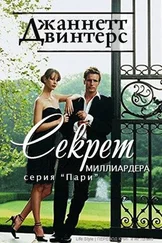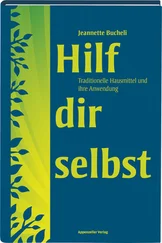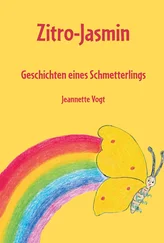“The last thing we need around here is another half-broke horse,” I said. “Smack her on the rump and send her off. She belongs on the range.”
AS MUCH FUN ASranch life was for the kids, I felt they needed more civilizing than it could provide. Jim and I decided to send them both to boarding school. While they were away, I was going to finally earn that darned diploma, get a permanent teaching job, and join the union, so beetleheads like Uncle Eli and Deputy Johnson couldn’t have me fired just because they didn’t like my style.
Since the hearse was pretty dinged up after the rollover-and because Little Jim had branded the seats with the dashboard lighter-the county let us buy it for a song. We packed it up and I drove the kids south, first dropping Little Jim, who was eight, at a boys’ school in Flagstaff, then Rosemary, who was nine, at a Catholic girls’ school in Prescott. I sat in the car watching a nun lead her by the hand into the dormitory. At the doorway, Rosemary turned around to look at me, her cheeks wet with tears. “Now, you be strong,” I called out to her. I had loved my time at the Sisters of Loretto when I was a girl, and I was sure that as soon as Rosemary got over her homesickness, she’d be fine. “Some kids would kill for this opportunity!” I yelled. “Consider yourself lucky!”
When I got to Phoenix, I found a bare-bones boardinghouse and registered for a double load of courses. I figured that if I spent eighteen hours a day going to class and studying, I could get my degree in two years. I loved my time at the university and felt happier than I thought I had a right to be. Some of the other students were astonished at my workload, but I felt like a lady of leisure. Instead of doing ranch chores, tending sick cattle, hauling schoolkids far and wide, mopping the school floor, and coping with belligerent parents, I was learning about the world and improving my mind. I had no obligations to anyone but myself, and everything in my life was under my control.
Rosemary and Little Jim didn’t share my enthusiasm for academic life. In fact, they hated it. Little Jim kept running away, climbing over fences and through windows, pulling out nails when the windows were nailed shut, and using tied-together bedsheets to shimmy down from upper floors. He was such a resourceful escape artist that the Jesuit brothers started calling him Little Houdini.
But the Jesuits were used to dealing with untamed ranch boys, and they regarded Little Jim as one more rambunctious rapscallion. Rosemary’s teachers, however, saw her as a misfit. Most of the girls at the academy were demure, frail things, but Rosemary played with her pock-etknife, yodeled in the choir, peed in the yard, and caught scorpions in a jar she kept under her bed. She loved to leap down the school’s main staircase and once took it in two bounds only to come crashing into the Mother Superior. She was behaving more or less the way she did on the ranch, but what seemed normal in one situation can seem outright peculiar in another, and the nuns saw Rosemary as a wild child.
Rosemary kept writing me sad little letters about her life. She liked learning to dance and play the piano but found embroidery and etiquette excruciating, and the nuns were always telling her that everything she did was wrong. She sang too loudly, she danced too enthusiastically, she spoke out of turn, she drew whimsical pictures in the margins of her books.
The nuns also complained that she made inappropriate comments, though sometimes she was simply repeating things I’d told her. Once, when she was wondering about the boy who’d died trying to swing to heaven, I’d said maybe it was for the best because he might have grown up to be a mass murderer, but when she said the same thing to a classmate whose brother had died, the nuns sent her to bed without dinner. Other classmates picked on her. They called her “yokel,” “bumpkin,” and “farmer’s daughter,” and when Jim donated fifty pounds of beef jerky to the school, they dismissed it as “cowboy meat” and refused to eat it, so the nuns threw it away.
Rosemary did stand up for herself. One night, she wrote, when she was doing the dishes, a classmate started teasing her about her father, saying, “Your dad thinks he’s John Wayne.”
“My dad makes John Wayne look like a pussy,” Rosemary replied, and dunked the girl’s head in the dishwater.
Good for her, I thought when I read the letter. Maybe she’s got a bit of her mother in her after all.
In her letters, Rosemary said she missed the ranch. She missed the horses and cattle, missed the ponds and the range, missed her brother and her mom and dad, missed the stars and fresh air and the sound of the coyotes at night. The Japanese had bombed Pearl Harbor in December, and everyone at the school-both the students and the nuns-lived in fear. One girl in Rosemary’s class had a brother on the battleship Arizona , and when she heard it had been sunk, she fell to the floor sobbing. The nuns kept blankets over the windows at night as part of the blackout- people were fearing that Japanese bombers were going to fill the skies over Arizona-and Rosemary said she felt like she couldn’t breathe.
Be strong, was all I could think to say when I wrote her back. Be strong.
I also corrected the grammar in her letters and returned them to her. I wouldn’t have been doing that girl any favors to let those sorts of errors go unchecked.
Near the end of Rosemary’s first year at the academy, I received a letter from the Mother Superior saying that she thought it would be best if Rosemary didn’t return for a second year. Her grades were poor and her behavior was disruptive. I had Rosemary tested that summer, and as I suspected, she was plenty bright. In fact, except for math, she tested in the top five percentile. All she needed to do was knuckle down and get focused. I wrote the Mother Superior, assuring her of Rosemary’s intelligence and pleading for another chance. The Mother Superior reluctantly agreed, but Rosemary’s grades and rowdiness got even worse her second year, and when it was over, the Mother Superior’s decision was final. Rosemary and the school were not a good fit.
Little Jim hadn’t done much better. I’d earned my college degree by then, and I took both Rosemary and Little Jim with me back to the ranch. The kids were so happy to be home that they ran around hugging everything-cowboys, horses, trees-and then they saddled up Blaze and Socks and headed out to open country, quirting their horses into a gallop and whooping like bandits.
NOW THAT I HADmy college degree, I was in demand as a teacher and got a job in Big Sandy, another little town with a one-room school, where I enrolled both Rosemary and Little Jim. Rosemary was delighted not to be returning to the academy. “When I grow up,” she told me, “all I want to do is to live on the ranch and be an artist. That’s my dream.”
The war was well under way by then, in both the Pacific and Europe, but aside from the shortage of gasoline, it had little impact on our life on the Colorado Plateau. The sun still rose over the Mogollon Rim, the grazing cattle still wandered the range, and while I prayed for the families who put gold stars in their windows because they’d lost sons in the fighting, truth be told, we still worried more about the rains than the Nips and the Nazis.
I did plant a victory garden, mostly to be patriotic, since we had all the beef and eggs we could eat. But a green thumb was not among my talents, and between my teaching and ranch work, I never got around to watering the garden much. By midsummer, those tomatoes and melons had withered on the vine.
“Don’t fret about it, honey,” Jim said. “We’re ranchers, not farmers.”
My mother had died back when I was studying in Phoenix. It was blood poisoning that got her, from her bad teeth, and it came on so quick that I didn’t have a chance to make it back to the KC before she passed.
Читать дальше









